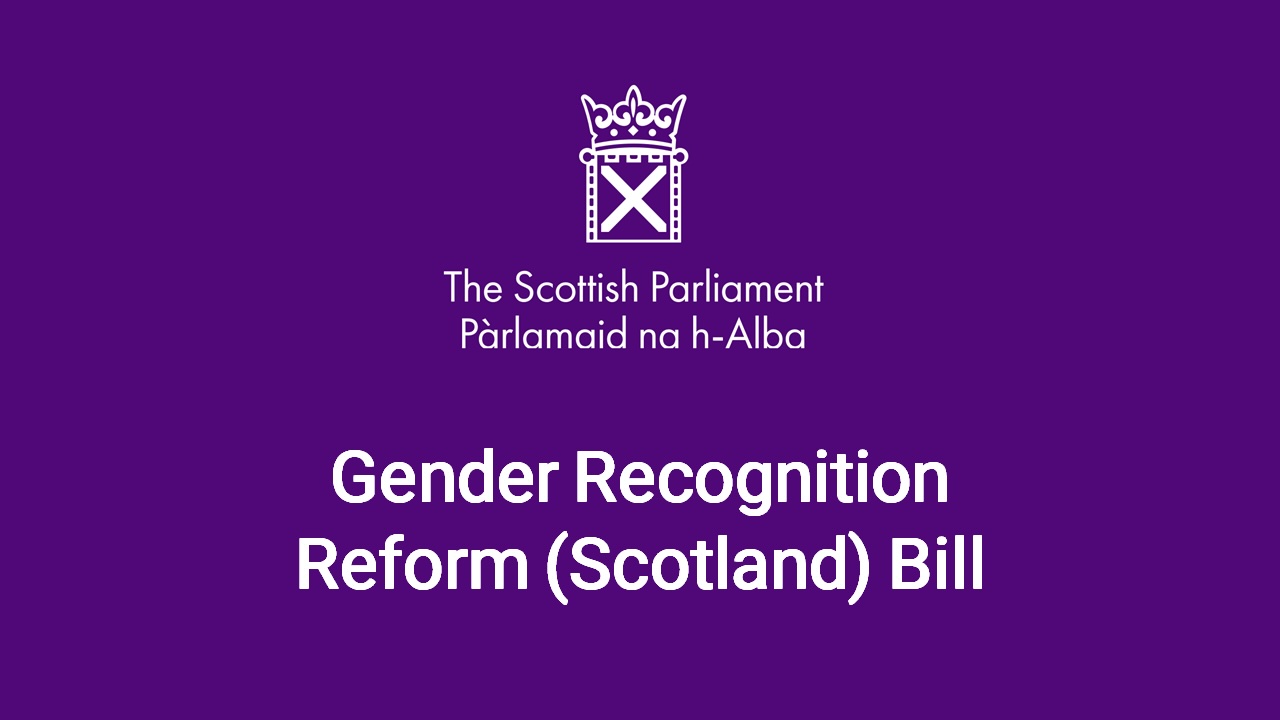Gender Recognition Reform and the Supreme Court
The Supreme Court decision in For Women Scotland vs Scottish Ministers ruled that the protected characteristic of sex (being male or female) in the Equality Act 2010 means biological sex and not that certified via a Gender Recognition Certificate under the Gender Recognition Act 2004. Since then there has been much commentary on the implications of this but one quite significant implication has been overlooked.
The Gender Recognition Reform (Scotland) Bill (GRR Bill) was passed by the Scottish Parliament on 22 December by 86 votes to 39. The then Secretary of State for Scotland, Alister Jack made a Section 35 Order which blocked the Bill from being sent for Royal Assent. The Order sets out the reasons for doing so. They include the adverse impact on the Equality Act 2010 and, in particular as set out in Reason 2,
A full gender recognition certificate has the effect of changing the sex that a person has as a protected characteristic for the purposes of the 2010 Act. This is subject to a contrary intention being established in relation to the interpretation of particular provisions of the 2010 Act.
The reasons also include adverse impact on “Fiscal, economic and monetary policy” and “Social security schemes”. The Secretary of State also asserted “that each reason articulated individually amounts to an adverse effect which justifies the making of this Order.”
The predominant reasoning for the Order was the impact on the Equality Act 2010. But, as noted in Reason 2 (above), this objection was “subject to a contrary intention being established in relation to the interpretation of particular provisions of the Equality Act 2010.”
The Supreme Court has now ruled that such a contrary intention is in fact the law and that a gender recognition certificate does not in fact change the sex that someone has as a protected characteristic.
The consequence of this is that much of the rationale for the Section 35 Order has disappeared and a question arises as to whether there is sufficient legal basis for the Order to still have any legal justification
The Impact of the Order
An excellent analysis of the use of the Section 35 Order was published by the House of Commons Library.
The Order was made in January 2023 and remains in force. Scottish Ministers could, if they wished propose amendments to the Bill that would address the objections in the Order. Were they to do so, the Order would cease to have effect on the amended Bill. Shirley-Anne Somerville told Parliament on 22 April, however, that Ministers have no plans to bring back the Bill.
However, (and this is the central argument of this blog), Scottish Ministers do not control the fate of the GRR Bill. The Bill sits on the desk of the Presiding Officer of the Scottish Parliament. She is prevented by law from sending it to the Palace for Royal Assent.
Given that a very substantive part of the Reasons underpinning the Order have fallen away, the UK Government has a duty to reconsider the continuing validity of the order. Are the remaining reasons sufficient in law to justify the Order remaining in force? If the Order is not longer deemed to be valid, it should be repealed and the Presiding Officer would then have no choice but to send the Bill for Royal Assent and the Bill would become law.
If the UK Government fails to review the Order, a legal challenge could be mounted by way of Judicial Review challenging the decision of UK Ministers to do so.
A Section 35 Order has never been used before this case. A legal challenge to the Order was made by Scottish Ministers but failed. Given that challenge was never appealed and given that that many of the reasons for the Order have now disappeared, the view of the Courts on the Order today may well be different.
Either way, if there is no lawful impediment to sending the bill for royal assent, then Presiding Officer Alison Johnstone must do her duty, and the bill may well become law just in time for the 2026 Scottish parliamentary election. A decision of the Scottish Parliament to pass legislation should not be blocked indefinitely by an unlawful exercise of Section 35. Scottish Ministers may have no plans to reconsider the bill, but they are powerless as to whether it becomes law in its current form or not.

Great stuff Andy. You won’t remember me Andy. I was the Civil Servant who was press ganged by my boss to show you how the sasine system worked before you wrote your first book. Keep up the good work. It’s a pity the green party got highjacked by all the loonies. They were a decent part back in the day when I was a member, the ecology party of course
I do not remember but thnaks for popping by with the memory!